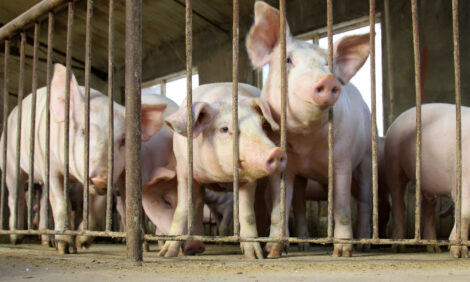



Political impacts on the future of British farming after Brexit
In this podcast, the Director of the Conservative Environment Network (CEN) discusses the network’s plans for the UK’s food production, agricultural land use and the environmental opportunities arising from Brexit.Though the UK Conservative Party’s goal for the past three years has been delivering Brexit, it has also been developing policies that will be enacted after the UK leaves the EU. Regulations governing trade, immigration and environmental standards need to be determined by the UK instead of using existing EU frameworks.
One organisation assisting the UK’s policy development is the Conservative Environment Network, led by Sam Hall. Hall has worked closely with former DefraSecretary Michael Gove to develop policies that take concrete actions to address climate change and set the UK on the path to net zero carbon emissions. Though political conservatism and environmental preservation are usually cast as opposing goals, Hall tells Farmgatehost ffinlo Costain that environmentalism is gaining traction among Tories.
What is the Conservative Environment Network (CEN)?
When introducing listeners to CEN, Hall simply states that it’s an organisation for politically active Conservatives who are lobbying to protect the UK’s natural environment. When creating CEN, Hall wanted to create a network of “green” Conservatives who can serve in parliament and in government. The network is building political influence – the parliamentary caucus has 60 members who are committed to environmental principles like wildlife conservation, maintaining air quality and combatting climate change.
CEN is moving into the policy arena as well. In addition to lobbying for environmental issues in the House of Commons, CEN has made benchmarking and binding targets for greenhouse gas emissions the new legislative standard. Hall’s goals for the caucus are to deliver short- and near-term policy on achieving net zero carbon emissions. He also wants to pass a sweeping Defra bill after Brexit.
The network is also monitoring the developments in the UK’s post-Brexit trade relationships. In Hall’s view, the fear that the UK will weaken its environmental standards to pass free trade deals is overstated. Since the government has submitted legislation (the Agriculture Bill, the Environment Bill and the recent amendment to the Climate Change Act), they are unlikely to go back on their environmental promises.
Hall also believes that since public support for environmentalism is so strong, maintaining standards would be an easy win for the current government. He tells Costain that there would be a huge political (and possibly electoral) price to pay from the public and NGOs if standards are lowered – there’s little chance of backsliding.
The Tory relationship with climate change
Looking back on the Tory’s views of climate change and environmentalism, it’s easy to see significant changes from the 1980s to the present era. Since the party was closely aligned with market deregulation and promoting business, few Tory politicians supported climate change activism. That trend has changed since the 2017 election. No one in today’s mainstream Conservative party engages in climate change denial and there is a broad consensus that the UK is in the midst of a climate emergency. So, when did this shift occur?
According to Hall, the party’s views on climate change have evolved, but the change in messaging has some foreshadowing. He points to Margaret Thatcher’s address to the UN General Assembly on climate change in 1989 as an example. However, he feels that the recent pivot to new environmental and agricultural policy has its roots in the 2017 election.
Many political pundits noted that the climate change issue resonated with younger voters – a cohort the Conservatives desperately need to court to remain politically relevant. Hall also told Costain that the role of cabinet ministers like Michael Gove shouldn’t be underestimated.
While at Defra, Michael Gove was known for consulting with different experts while creating environmental policy. The Agriculture Bill and Environment Bill, key pieces of legislation that safeguard the UK’s environment, were developed during his tenure.
Theresa Villiers, the current Defra Secretary, submitted these bills to the House of Commons without removing the frameworks that make them impactful. The legislation still contains legally binding targets for air quality, water quality and resource use. In Hall’s opinion, these bills will allow businesses to forecast long-term while protecting the UK’s natural resources.

How will conservative parties outside the UK react?
When Costain asked Hall whether the Conservative Party’s pivot to climate change action could influence other Western governments, Hall was tentatively positive. “I’d like to think we can,” he began. In his view, the difficulty for conservative parties in the United States and Australia is the prevalence of climate change denial. In those countries, climate change has become a cultural issue – left-leaning parties want to tackle in the policy arena while right-leaning parties view climate action as either misplaced or outside the government’s remit.
The UK is a case study where climate change has been decoupled from political identity and culture. This could be partially explained by the issue becoming more salient to all UK voters since the 2017 election. However, Hall has a different explanation. He believes that the pivot towards climate activism was successful because the Tories could demonstrate that the government could reduce carbon emissions while maintaining the economic status quo. Hall tells Costain that the right-wing rejection of climate science seen in other nations can be attributed to fear of left-wing economic systems. The Tories were able to show that climate action and capitalism could be pursued simultaneously.
The post-Brexit opportunities for British farming
In Hall’s opinion, leaving the Common Agricultural Policy (CAP) is the biggest opportunity for Britain’s agriculture sector after Brexit. In his mind, the CAP has stifled some elements of farm productivity and innovation. The programme also carried environmental drawbacks – there was an incentive for British farmers to maintain the status quo and not make improvements on greenhouse gas emissions.
When Costain mentioned the EU’s stewardship scheme and Rural Development Programme, Hall was dismissive. Hall believes that though the CAP had these stewardship schemes, they weren’t successful – uptake from farmers was low and the outcomes didn’t dazzle policymakers.
CEN’s argument is that by forgoing the CAP, the UK can replace it with the Agriculture Bill. Since the Bill places environmental stewardship as the core goal of agriculture and has binding emissions targets, Hall believes it will be a better safeguard for the environment going forward. It will also provide new funding for sustainable farming.
Though this sounds promising in theory, as of publication, the Agriculture Bill and Environment Bill have not been ratified and implemented. The UK still has an 11-month transition period after the 31 January Brexit date; the UK’s climate promises may be subject to revision.







